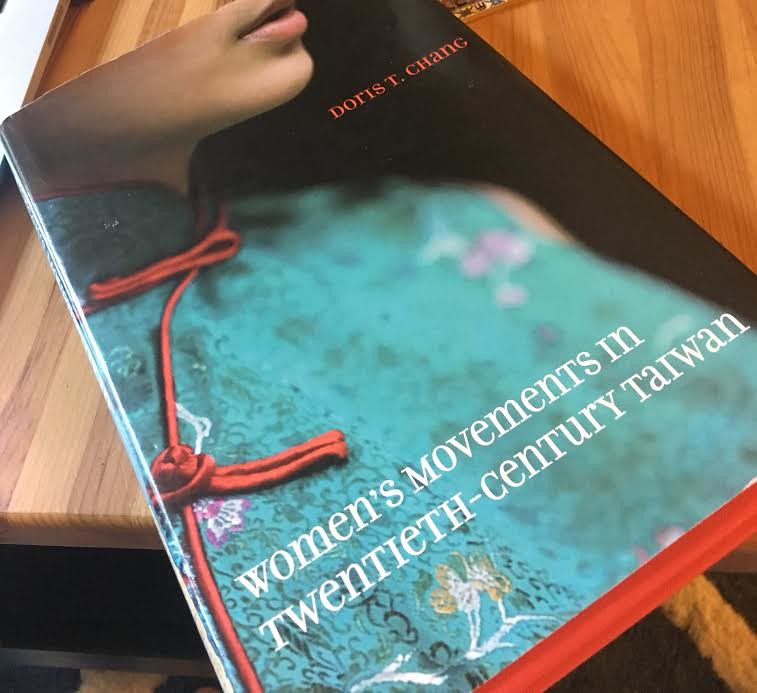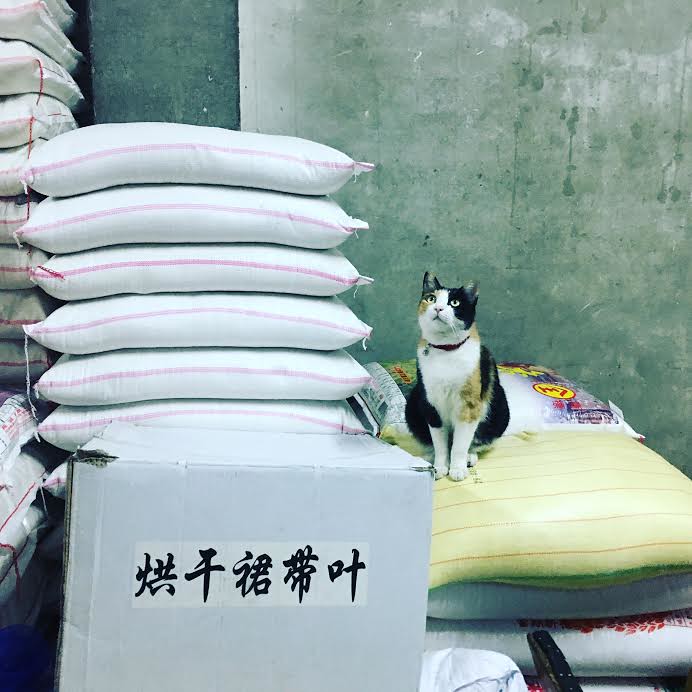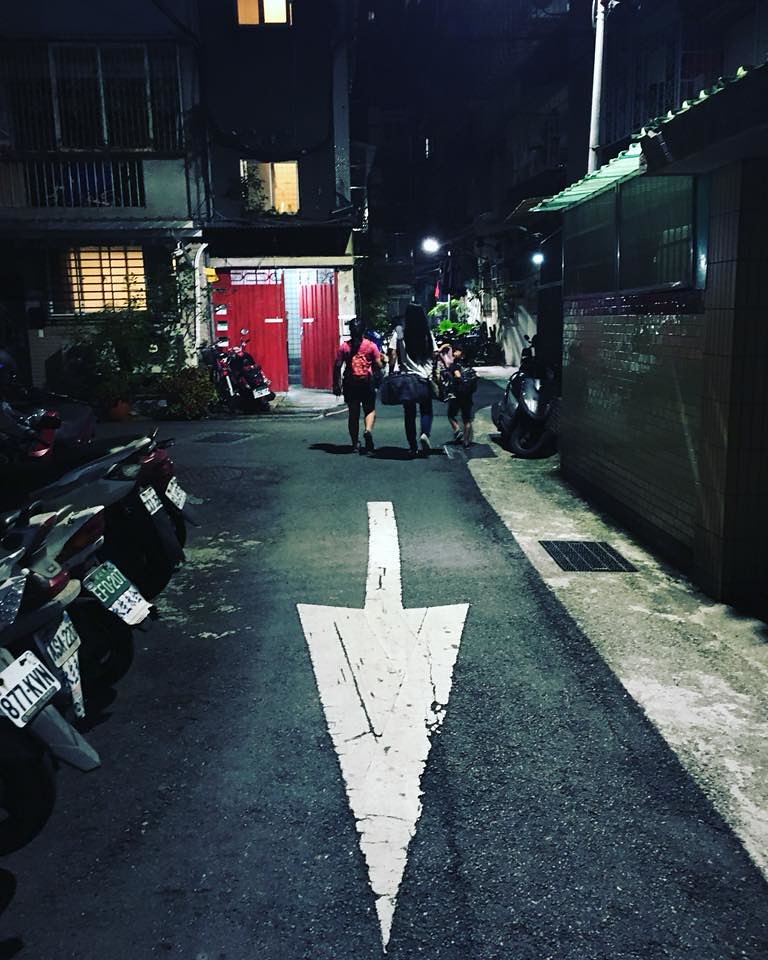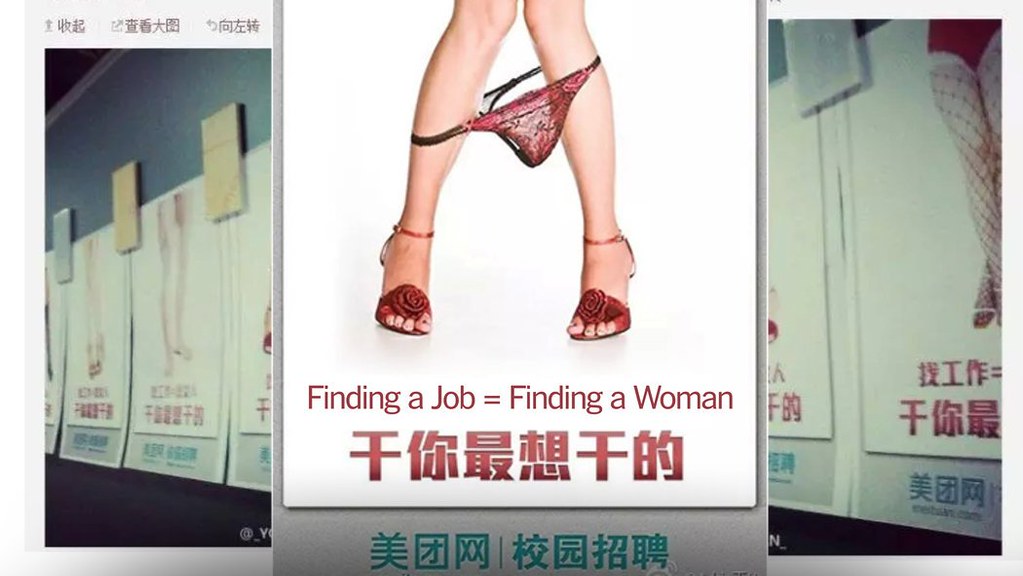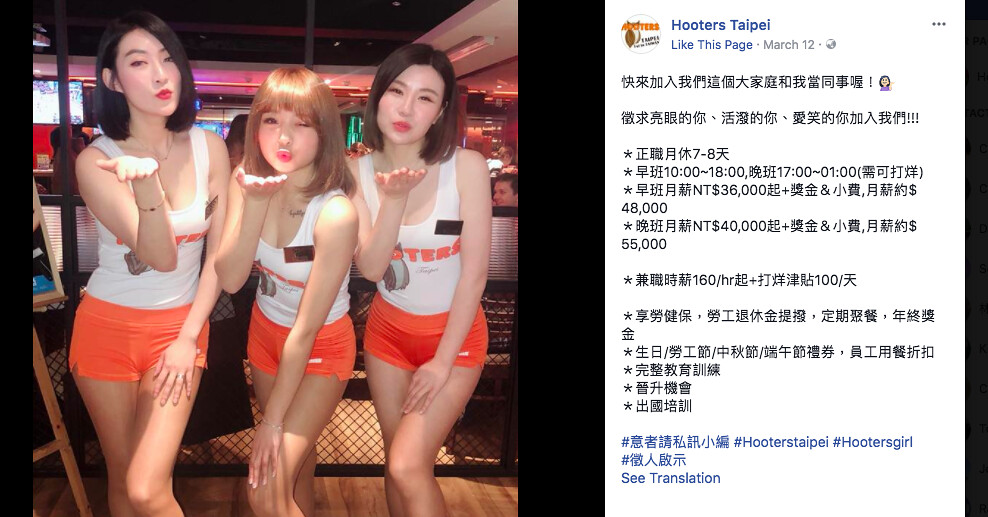I tried to avoid it - like, okay, this was pretty gross and could be a post about sexism in the Taiwanese workplace, especially as it relates to flight attendants (one of the most sexist work environments in Asia, to be frank, and EVA Air is known for specifically hiring beautiful flight attendants). But...do I have to? Maybe it'll just go away as some sensationalist garbage and I can write about something that doesn't make me want to gag.
But, as the story progressed, I realized that, gross-out factor and tabloid-like sensationalism aside, it was a real story of sexist workplace culture, and therefore...ugh. FINE.
So, as I'm sure you all know because we're all news bottom-feeders at heart (myself included), earlier this week news broke that an EVA Air passenger with mobility issues requested that a flight attendant help him lower his underwear, keep the door open and wipe him after using the restroom onboard. She initially refused, but he insisted he could not do these things on his own. He also, according to Focus Taiwan, made some disturbing comments at the flight attendant, which I won't publish here but you can read about literally everywhere else. While the passenger did have mobility issues, frankly, if he is going to fly but can't use the bathroom on his own, he needs to be traveling with an assistant who performs these duties in an official capacity, or not at all.
That's not what I'm here to gawk at, specifically. This should be open-and-shut: passenger harasses flight attendant (this surely counts as some form of sexual harassment, given his comments), flight attendant complains, airline intervenes, supports their employee, and at a minimum, the passenger is banned for life.
But no, of course that's not the end of the story, because the world is a horrible place and really it ought to just burn.
According to the Focus Taiwan article linked above:
Moreover, it was revealed that the passenger in question defecated in his underwear on a previous flight in May 2018, after which the airline did not place him on a blacklist, but rather left frontline flight attendants to deal with the man every time he flew with the airline, the union said.
CNN reported that EVA Air is insisting his previous flights were without incident, but that:
At the Monday press conference, the flight attendant was accompanied by a representative of the local flight attendants' union and fellow EVA employee. The union representative told reporters the man had flown EVA from the US to Asia numerous times. He had defecated in his seat during a flight last May after the crew rejected his demands, causing a foul smell in the entire cabin for over 10 hours, the representative said.
Taiwan News provides some potential background to previous incidents, so although they're not a source I care to link to, I will here.
So, this isn't an issue of a one-off incident in which a passenger made an unreasonable request, and the flight attendant was too flustered to forcefully refuse him (after all, her job is in customer service). It's entirely likely that this passenger has a history of such behavior, and that EVA Air, in the past, has not protected its flight attendants from it.
Like I said, working as a flight attendant one of the most sexist work environments in Asia. While I have said that of all the countries in Asia, Taiwan has the best gender egalitarianism (and meant it, and will defend it), that doesn't mean it's perfect, or even particularly good. Just better than other countries in the region, and that's not a particularly high bar to clear. And in this particular sector, the company culture is a throwback to the 1950s.
What's more, the same article reports that he has another flight with EVA booked this May, with no sign from the airline that they are intending to blacklist him or refuse to let him fly. It's quite likely that the company will, yet again, "leave frontline flight attendants to deal with the man".
EVA also noted that:
Later Monday, EVA issued a press statement saying flight staff are perfectly entitled to refuse passenger's requests they consider inappropriate. They also pointed out that the male cruise captain also helped the passenger in question during the flight.
The company also said it backs the flight staff completely and are prepared to offer assistance, if needed, to sue the passenger.
Translation:
"You've spent your entire career being told you have to do whatever it takes to please customers, and you know on some level you were hired mostly for your looks anyway. Our official rules state that you may refuse passenger requests, but let's be real. If the passenger complains, you'll be in trouble for not providing good service. However, we will be sure to tell the media that you could have refused the request, even though we both know you couldn't, really."
I don't expect every reader to understand this, but many of us who's held a customer service job have dealt with this tacit set of rules. There's the rule the company touts as official policy (you may refuse the customer), and the rule you know you are actually expected to follow (you'll be in trouble if the customer complains). If you're a woman, there's a whole new layer to it in which official policy may state that sexual harassment is not allowed, but everyone knows the real rules are "if a customer gets angry because you shut down their harassing behavior and complains, it's going to be a problem for you."
Note, for instance, that EVA is essentially saying here "we back our staff....buuuuuuut we're still going to let this man fly again and they'll have to deal with him". And, of course, "we'll help you sue him if you want, buuuuuuut we're not going to take any action ourselves."
That, readers, is how you know there's a tacit set of rules in place. If the rules actually were the rules, this guy would've been blacklisted already.
And that's what makes Asia such a frankly difficult place to work. Laws typically prohibit gender discrimination and sexual harassment. If you file such a complaint (especially a gender discrimination complaint to the government), they will take it seriously. I would know - I looked into doing so once, to a former employer who had sexist work practices, but ultimately chose not to as had no documentary evidence aside from one contract with some vaguely sexist guidelines, only eyewitness testimony.
But...good luck getting your employer to back you. And you know that men who target women at work tend to be quite good at making sure not to leave a paper trail or even witnesses. It's one of those rights that women in Taiwan often call "看得膽吃不到" - you can see it, but you can't eat it. You know you have the right, but good luck actually exercising it.
And this is gearing up to be just such a situation, with EVA continuing to take a weak position on the customer's behavior and not doing much to actually protect its employees. Or as CNN put it:
Supporters of the cabin crew have also blamed the corporate culture of many Asian service-sector companies that insist the "customer is always right" while, according to critics, ignoring employees' welfare -- especially after it was revealed the passenger appeared to be a repeat offender.
This post wouldn't be complete without a tirade about why, if this is service culture in Asia, it's no wonder there are so many creepo Western guys here looking to get off on their fetishes with Asian women (who, as in this case, may not be consenting). When employers in all manner of hospitality industries take this attitude (or, in some cases, cater specifically to it, but at least at hostess bars/KTV you know what you're getting into), men who think they can treat women like garbage come here and, well, get away with treating women like garbage. It's no coincidence that this man had repeated incidents on Asian airlines. He knew he could get away with this, and it looks like that just might happen.
There is something we can do. We can write to EVA and let them know that as potential customers, we expect them to treat their flight crew better. This is one time when voting with our wallets might have an effect: not buying EVA tickets in solidarity with the flight attendants would surely get the airline to reconsider its weak-kneed response. When we see behavior like this in public, we can stand up and say something, even if it might be awkward or uncomfortable.
And I don't just mean Westerners. I know I have plenty of Taiwanese readers. We - all of us - can do this. Because the treatment of women in these positions has got to stop.

